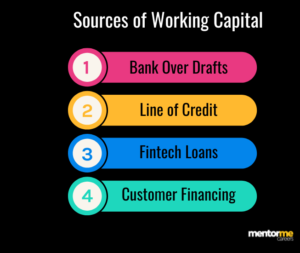An essential component of the financial sector is investment banking. It entails offering businesses, institutions, and governments financial advisory services. Investment bankers play a vital role in assisting companies with risk management and capital raising. Amidst the plethora of career options in finance, investment banking is a highly desirable area with abundant prospects for development.
However, becoming successful in this fast-paced world of investment banking demands more than just a basic understanding of financial concepts. This is where an Investment Banking Course may help, giving people the specific knowledge and understanding they need to succeed in this demanding but rewarding field.
Understanding The Basics Before Enrolling in an Investment Banking Course
Understanding the basic function of investment bankers in the financial ecosystem is crucial before exploring the benefits of taking an investment banking course. It is the practice of helping governments, businesses, and other organizations raise money by selling them stocks and bonds, among other financial instruments. Investment bankers also offer advice on restructuring, other strategic transactions, and mergers and acquisitions.
Investment banking is a complex industry that requires a broad skill set. That includes financial analysis, market knowledge, valuation tools, and strategic thinking. As such, to acquire the skills necessary to succeed in this cutthroat industry, prospective professionals must go through a demanding training program.
Those who complete an investment banking course may also be eligible for networking events, job interview assistance, and internships. For those wishing to break into the fiercely competitive investment banking sector, this can be quite important.
People who enroll in the financial modeling certification program can also gain the abilities and information needed to be successful in the investment banking industry. This covers abilities like financial modeling, carrying out due diligence, arranging transactions, and giving clients financial guidance.
Investment Banking Course Add Value to a Finance Career: How?
Adaptable Skill Set
An investment banking course does not only provide individuals with specific knowledge. But it also develops a flexible skill set that is essential for navigating through the constantly evolving financial world. Participants gain critical thinking abilities, perseverance in the face of uncertainty, and problem-solving skills in anything from financial analysis to deal structuring. Professionals in the finance sector may flourish in various jobs and settings. This flexible skill set. As a result, this also helps them stay effective in a market that is becoming more competitive.
Rapid Career Advancement
By equipping students with the fundamental knowledge and abilities that business demands, enrolling in an investment banking course can expedite career advancement. Individuals who possess a strong grasp of financial modeling, valuation methodologies, and deal structuring tactics are more likely to succeed in entry-level positions and advance swiftly to more senior roles in investment banks or other financial organizations. Employers looking for ambitious and motivated applicants highly value this kind of commitment to professional development, which is demonstrated by finishing such a course.
Graduates of investment banking programs frequently find themselves on the fast road to promotions, expanded responsibilities, and higher earning potential since they have a specialized skill set and credentials relevant to the business. Moreover, people might rise in their careers quickly when they use their newly acquired skills to make an impression.
Collaborating with Intelligent People
An investment banking course creates a dynamic learning environment by allowing you to work with knowledgeable professors, industry experts, and intelligent peers. Therefore, interacting with like-minded people enables participants to discuss ideas. It also enables one to take on challenging issues and acquire a variety of viewpoints regarding financial transactions and methods. Students who collaborate with skilled professionals not only gain a deeper comprehension of the course subject but also cultivate critical collaboration and communication skills that are vital for success in the finance sector. Working with bright individuals not only makes learning more enjoyable. However, it also helps build a network of mentors and colleagues who will be there to help you along the way as you advance in your career.
Entrepreneurial abilities
Entrepreneurial skills are taught in an investment banking course and are essential for spotting and seizing profitable company prospects. By conducting feasibility studies, assessing market dynamics, and evaluating investment risks, participants gain knowledge. It also helps in gaining the skills necessary to make well-informed decisions while engaging in entrepreneurial endeavors. Additionally, students gain knowledge in financial modeling, valuation, and fundraising techniques—all crucial for drawing in investors and helping firms raise capital. These entrepreneurial abilities enable financial professionals to take risks, establish creative companies, or support expansion. Additionally, the growth of already-existing businesses promotes economic prosperity both within and outside the finance sector.
Getting Ready for the License Exams
Preparation for license tests like Series 7 or CFA exams is a common feature of an investment banking course. These demanding tests show mastery of important subjects. It includes securities laws, investment research, and portfolio management, which are highly respected in the finance sector. In addition, these courses help professionals prepare well for these tests and improve their chances of success. Furthermore, obtaining a license improves one’s credibility and provides access to more advanced career options. Such as positions in institutional sales and trading, financial advising, and investment management.
Comprehending the Regulatory Environment
An Investment Banking Course offers a comprehensive grasp of the regulatory framework that oversees financial markets. Important rules, including those outlined by the Securities and Exchange Commission (SEC) and other regulatory agencies, are taught to participants. Professionals learn how to navigate complicated regulatory systems by studying compliance standards, ethics, and legal obligations. This information is crucial for guaranteeing compliance with industry rules, reducing risks, and upholding moral principles in financial dealings. Gaining an understanding of the regulatory landscape protects against legal ramifications while simultaneously promoting confidence in the banking business.
Conclusion
In conclusion, those interested in a career in finance can benefit greatly from enrolling in an investment banking course. These courses offer a thorough foundation for success in the cutthroat world of investment banking. This includes specific knowledge and skill development, networking opportunities, industry insights, and licensure exam preparation. Additionally, they give workers flexible skill sets, business acumen, and a deep comprehension of the regulatory landscape, setting them up for long-term and quick career advancement. Finance professionals can use the advantages of an investment banking course to promote innovation, and succeed in dynamic markets. They realize their career goals by embracing continuous learning and professional development.



